Window dressing: Celia Rufey answers your design questions
Window dressing Q&A with designer Celia Rufery. Everything you need to know about window dressing in any room in your home

Sign up to our newsletter for style inspiration, real homes, project and garden advice and shopping know-how
You are now subscribed
Your newsletter sign-up was successful
Window dressing is a tricky thing to get right. Windows of course come in all different shapes and sizes so it's important to pick a window dressing style and design to suit both your window and your decor style.
Here, Celia Rufery answers your pressing window dressing questions...
1/15 Can you advise on suitable shutters that will withstand the moisture of a wet room?
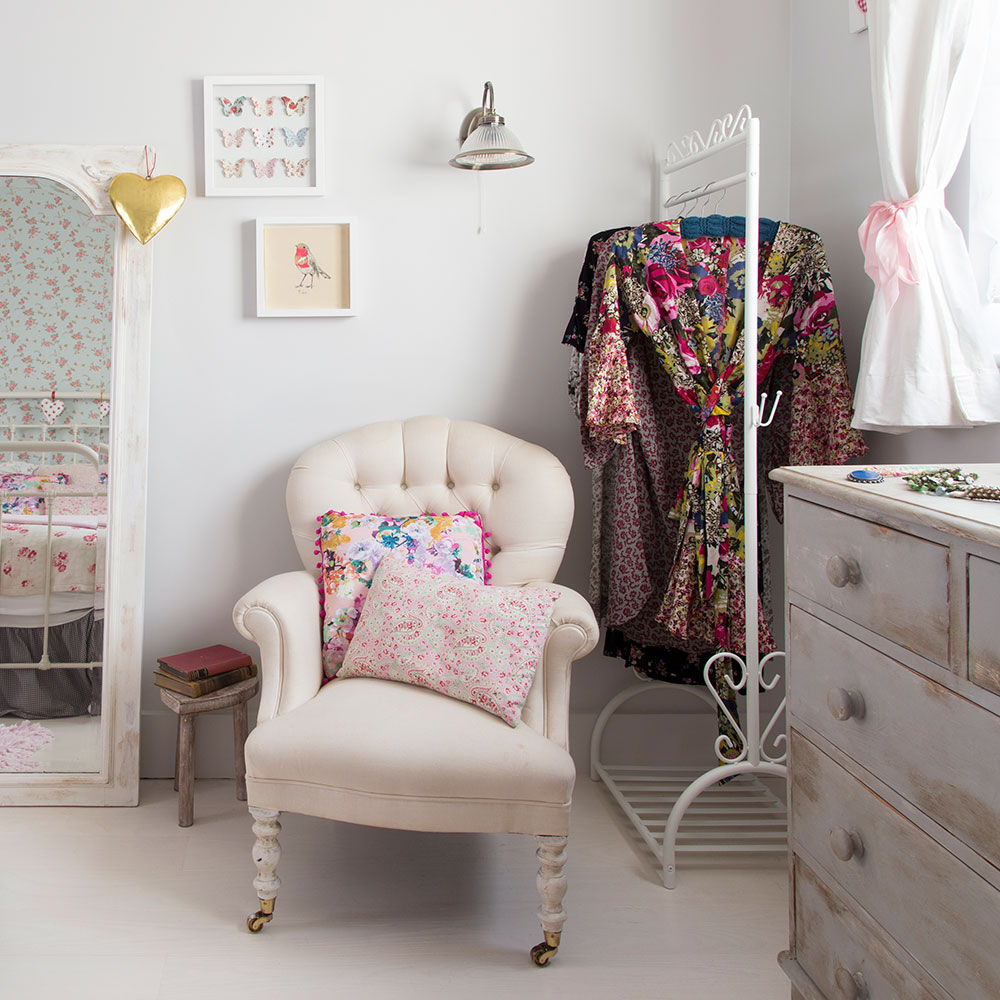
Shutters could be solid panel or louvred and you will find both styles at The New England Shutter Company and at Shutterly Fabulous. Solid panel shutters are easier to wipe free of splashes but would need space either side of each window to fold back against the wall. They would also exclude natural light when closed. Louvred shutters with a solid panel at the base of each window would allow for natural light and ventilation at the top and are one option offered by The New England Shutter Company. It recommends having wet room shutters in Western Red Cedar finished with water resistant acrylic paint (pictured), which can be matched to any paint colour at no additional cost. Prices for shutters start at £406sq m. Shutterly Fabulous recommends louvred shutters for a wet room to allow for ventilation and limit condensation. New to its collection are water and steam resistant vinyl shutters, though these only come in three shades of white, from £290sq m. Other louvred shutters in its range can be ordered in custom colours from £320sq m. Prices include home consultation and installation.
2/15 Dressing a wide window
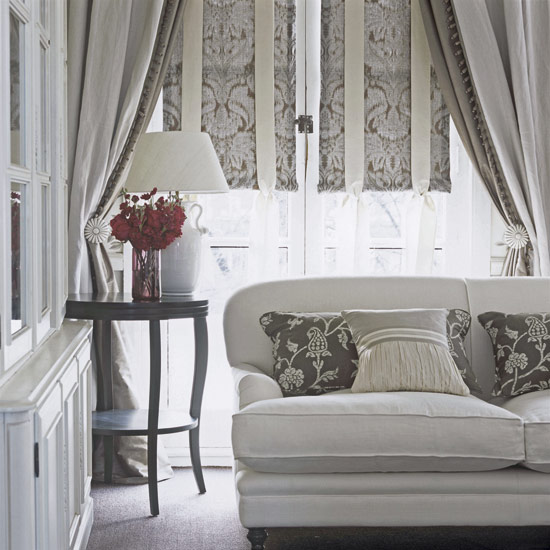
Our window measures 240cm wide with a 100cm drop and has a radiator beneath. How can we dress it for privacy? We have old French furniture and love that typically light look.
You could team a Roman or roller blind with full-length dress curtains hanging down each side of the window clear of the radiator. As you mention privacy as an issue, a blind that pulls up from the bottom of the window and can be stopped at any point would be useful. Eclectics makes these. If the radiator is wider than the window, making curtains impractical, you could fit a blind beneath a decorative shaped pelmet that is covered in the same fabric. The pelmet will ideally fill the dead space between the top of the window and the ceiling. A further alternative, and very French, is shutters. These could be louvred, especially if painted in a typically French blue-grey, or solid wood. Companies that supply these include The Shutter Company; Le Louvre, which offers a vintage distressed finish; and The New England Shutter Company, where you can choose a sandblasted finish.
3/15 How to measure for making Roman blinds
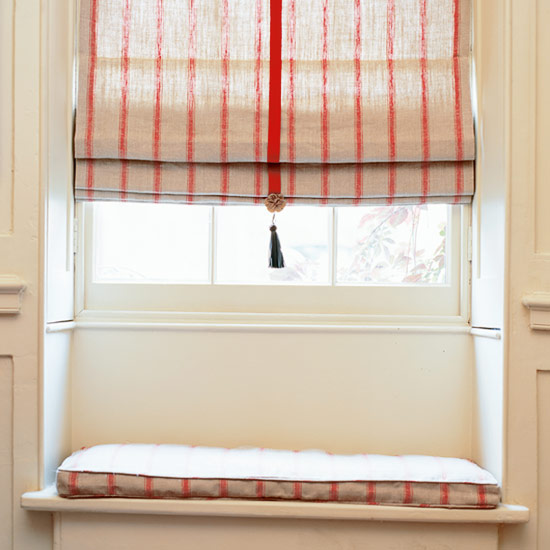
Is there a rule for establishing the distance between the rod pockets in relation to the drop of a Roman blind?
To answer your question, I called on the expertise of Rebecca Day of soft furnishers Merrick & Day. There is not so much a rule, Rebecca says, as a method for deciding on the fold size and number of rod pockets each blind will need. One factor is how much space there is to stack the blind at the top of the window without excluding light. If the window is in a recess or close to the ceiling, limit the depth of the stack. Deduct an allowance for the headrail from your finished blind length. If this is a wooden batten, allow 5cm. Divide the remaining drop by an odd number and try several options until you get a measurement that gives a suitable stack depth for the blind when it?s pulled up. Now multiply this by two. This will give you the distance between the rod pockets.
Sign up to our newsletter for style inspiration, real homes, project and garden advice and shopping know-how
4/15 Dress an apartment window
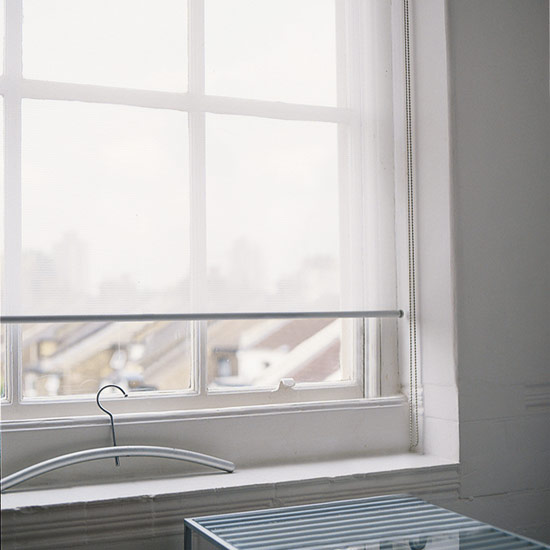
Can you suggest the best way to dress a window in my apartment, which is overlooked by a building that is just 25 metres away?
Alternatives to shutters and venetian blinds include window film (try Brume) and translucent roller blinds. I?m sending you a cutting of Sheer Cream 176E, from £72 for a blind measuring 60cm wide with a drop of 80cm, from the Eclectics range by NV Blinds. Also take a look at translucent blinds made by Clarkes Blinds. Fit a blind like this close to the glass, behind a Roman blind that matches the blinds or curtains at the other windows. A sheer blind can be adjusted to the point in the view where the garden finishes and the building begins.
5/15 Sheer fabrics for curtaining
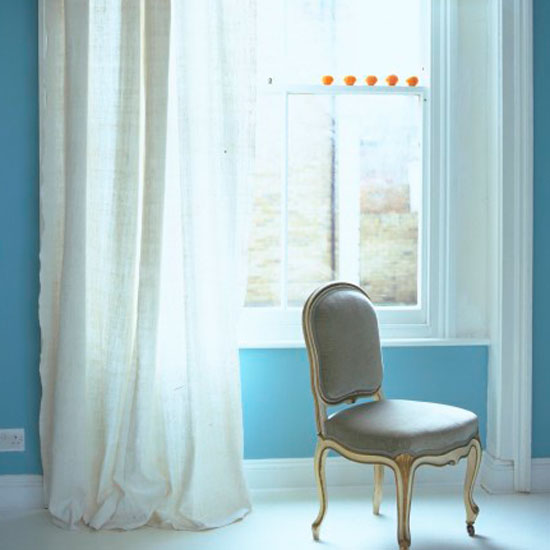
We are building a house with wide sliding glass doors on two sides of the living room. Can you suggest a neutral sheer fabric for curtaining, and also tell me how the widths should be joined?
Look for fabrics that are at least 300cm wide, to reduce the number of drops (and seams) needed. Have a look at Cellini, linen, 319cm wide, £52.50m and Cerani, silk/bamboo/polyester, 330cm wide, £74.50m, both Romo; Arden, polyester/linen, 304cm wide, £33m, Sanderson; Aesop, linen/polyester, 330cm wide, £40m, Warwick; and Amble, linen/polyester, 320cm wide, £39m, Villa Nova. Curtainmakers often join widths of sheer fabric by seaming minimal turnings on an overlocker to keep the seam line unobtrusive.
6/15 Add length to vintage curtains
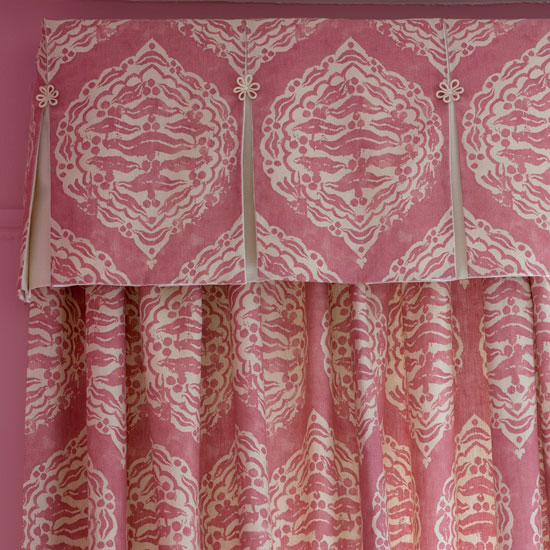
I bought a pair of 1950s printed linen curtains at a textile fair, but they are too short for the window at which I had hoped to hang them. If I unpick, wash and remake them, what would be the best way to make them longer?
Add a fabric border along the bottom of the curtains and take it up each leading edge. That way it will appear to be an intrinsic part of the design, not the solution to a problem. Old linen often has a soft handle, so try to find a similar quality of washable fabric for the border, such as Solo, £55m, from Romo. Pre-wash the new fabric and use a softener in the rinse programme to give it a comparable handle to the old. Interline the curtains when you make them; this will transform how they hang and also help support the older fabric.
7/15 Maintenance-free wooden windows
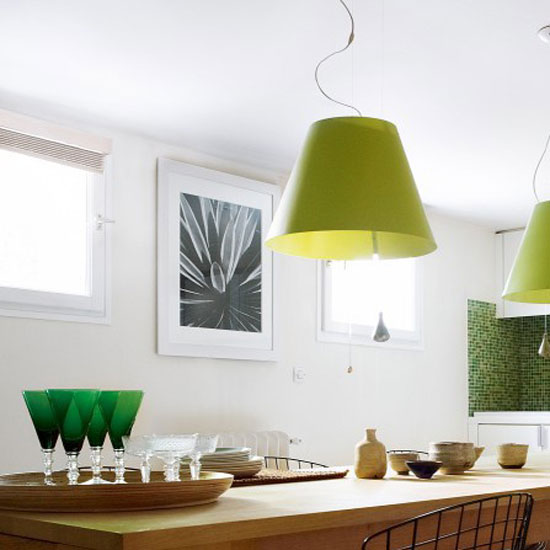
Is there a company that makes maintenance-free wooden windows that are not easily accessed after fitting?
Timber windows always need some maintenance as the years go by. The Original Box Sash Window Company, makes hardwood windows in any style. It uses putty-style beading (real putty would dry out) and paints them with a waterborne paint, so they shouldn't need painting for up to 20 years. Windows from NorDan, could also be of interest. In various styles and made of north European redwood, some come with exterior aluminium cladding; the cladding is powder-coated in a choice of colours, so it looks similar to painted wood, and little upkeep is needed. Some of the windows are reversible, allowing the external glazing to be cleaned from the inside, or choose self-cleaning glass, washed by the rain. There are also double-glazed windows and high-performance triple-glazed designs with thermal insulation.
8/15 Choose window film

With two large bay windows in my Victorian house, I want to prevent furnishings from fading without losing light. I know window films are available, but do they work?
Window films do work and are designed to meet many specifications. Fading is caused by ultraviolet light, the normal spectrum of visible light and infrared light, which registers as heat. If a window film deals only with UV light, then it addresses just 45 per cent of the cause of fading. There is always going to be a compromise but window film such as Prestige 70 by 3M is optically clear, takes out 99 per cent of UV light and 97 per cent of infrared light/heat and allows through 70 per cent of visible light. It is also reckoned to contribute a 60 per cent reduction in fading. For bespoke window film, try Emma Jeffs, made to measure designs, which are both pretty and functional.
9/15 Make a curtain with a frilled top
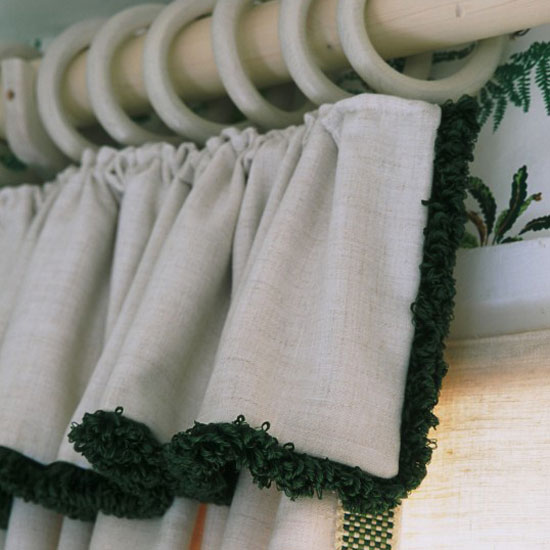
Where can I find instructions to make curtains with a frilled top heading?
You'll find them in Blinds, Curtains & Cushions by Catherine Merrick and Rebecca Day, Merrick & Day. The name of the heading is a flop-over frill, and it's made by adding a deep flat frill to the top of the curtain above the heading tape, leaving the frill to fall over the front. The frill's weight, however, can pull the top of the curtain forward and, especially if the frill is in another fabric, the join may be visible. In this case, Rebecca Day advises hand-sewing a piece of the frill fabric over the heading tape once the tape is gathered up, using pin hooks that can be punched through the fabric and into the tape to attach the curtains to a track or rings.
10/15 Dress a triangular window
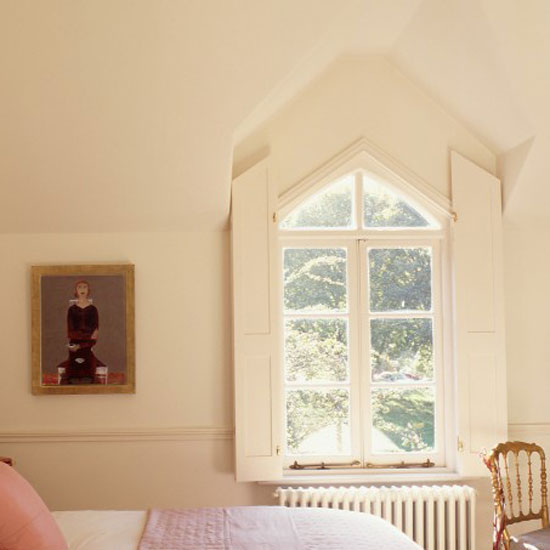
We are building our own house and the bedrooms have large windows that are triangular at the top. Do you have any suggestions as to how I could dress them?
Curtains can work for this shape of window, framing the triangle, fitted within the reveal or outside it. They are cut and pleated to fit the window shape, and the heading is fixed so that the curtains can't be drawn; they are either held with tie-backs or are Italian-strung, which pulls them back and up, rather like stage curtains. Alternatively, most shutter companies make shutters to fit triangular windows. The lower portion has hinged, folding shutters with a separate static section at the top. All slats open, even on the angle. The New England Shutter Company, has a good distribution and fitting service. Or try The Shutter Shop, The Shutter Shop, which serves a wide area.
11/15 Find a blind to fit your skylight
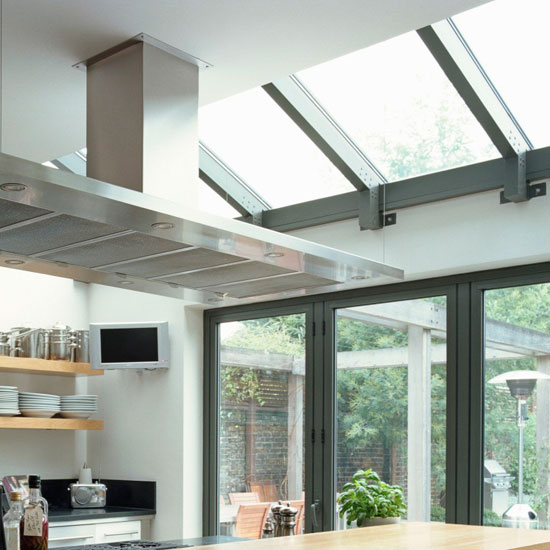
Our barn has skylight windows, not Velux, that were installed 20 years ago. Only concertina-type blinds fit, but they don't suit my kitchen with its simple cupboards and stone floor. Do you know where I might find others?
I asked Velux if it could make blinds for other types of skylight windows, but that isn't a service it offers. Luxaflex, in its Skylight range offers made-to-measure roller blinds, Plissé blinds, Venetian blinds and its own Duette honeycomb style. I imagine you'd find roller blinds the most suitable in your kitchen; these come in plain colours, black-out fabrics and a limited range of patterns. The blind is stored in a cassette at the top of the window and runs down in side channels designed to prevent billowing. When the window is out of reach, the blind is operated by a wand that locks into the bottom bar. A 100cm sq roller blind costs around £120. Tidmarsh & Sons, makes roller blinds for sloping windows in plain, patterned, black-out and heat-reflective fabrics. As a guide, a 100cm sq blind would cost around £100 plus a charge for fitting.
12/15 Make your curtain appear fuller
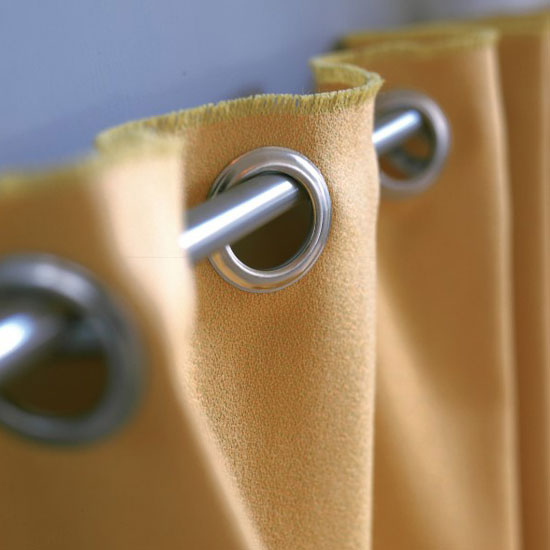
I have enough fabric for only one width in each curtain. How can I make them appear fuller?
Curtain tapes that work well with less fabric include Solar eyelet tape, £2.55m, which gives a ripple effect across the window, Universal Tempo tape, £1.90m, which also creates soft curves rather than defined pleats, and Touplis Special, £1.90m, which has hooks spaced to your choosing to form pleats, all by Rufflette. Walcot House, supplies no-sew curtain fittings that use fabric economically, including Universal Rings, £8.10 each. Or, you could put a border down each side of each curtain to add width. If you do this, detail with a narrow border along the top as an upstand above a gathered curtain heading. Interlining will add substance.
13/15 Use silk fabric to make a blind

I have a length of sari silk in peacock blue with gold thread embroidery that I would love to use for Roman blinds in my bedroom. Will a fabric this fine make up successfully as blinds? Also, I will need a blackout lining; do you know where I can buy this by the metre?
You can make a Roman blind out of a fine silk fabric, but first you should mount it on to a cotton lining of a similar colour, to give it substance and control its movement. Cut the silk and the lining fabric to size. Place the silk over the lining, ensuring that both are completely flat; pin together, then machine-stitch all around the edges. The joined pieces will form the face fabric for the blind. It's often a good idea to interline a fine fabric when making it up as a Roman blind, or you can simply add a further lining to the lined silk and make up the blind in the usual way. Thermal blackout lining in White or Champagne is available for £4·95 m, from branches of John Lewis.
14/15 Decorate a sash window
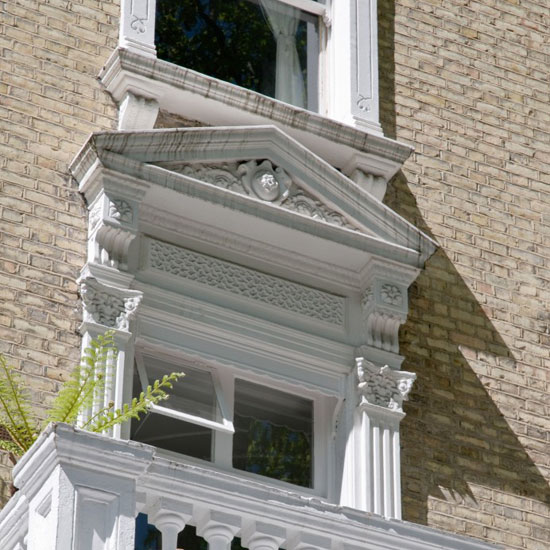
The tall sash window in our living room has no curtain. We like the way it frames the view, but some decoration is needed; our furniture is antique.
Architecturally handsome windows can stand alone but if yours looks underfurnished, add a decorative pelmet - carved, gilded, painted or fabric-covered. An antique pelmet is a statement piece and dealers in antique textiles are likely to have these. Elizabeth Baer Textiles, has fabric pelmets, often, in silk or toile de Jouy, from £100. Catherine Shinn offers antique fabric pelmets and valances, some embroidered, from £100 to £250. All would need to be attached to a pelmet board.
Carved wooden pelmets in a range of styles and finishes are made by Edward Harpley, including the fluted pelmet. You could also commission a fabric-covered pelmet from an upholsterer or curtain-maker. Without encroaching on the glass, consider making the pelmet slightly longer down each side of the window, to create a lambrequin. Whatever option you choose, I would suggest you add plain cream roller blinds that disappear behind the pelmet, except when pulled down to protect furnishings from the sun or to reduce the chill factor when the room is not in use.
15/15 Buy a floor-to-ceiling blind
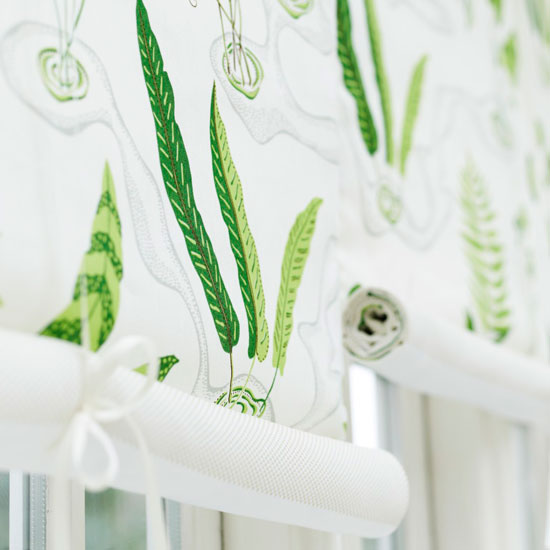
We've replaced a floor-to-ceiling window, which is 1.33m wide, and it needs a new roller blind with a drop of 3.63m. All the blind companies I've approached have a maximum drop of 3m. Will any company make a new blind in the larger size?
Blind Fashion will make a blind with a 3.63m drop. It has pre-stiffened stock fabrics, or ask for a laminated blind with your own choice of fabric, but you have to buy this from the retailer who then places the blind order for you. Cotton or cotton mix is a good choice of fabric as it's stable but not too thick. Blind Fashion's service is available through designers and retailers; your nearest is Bentalls in Kingston-upon-Thames.
Need help with your home? Got an interior design question?Our decorating expert Celia Rufey offers a bespoke design service to help you with your home.

Thea Babington-Stitt is the Managing Editor for Ideal Home. Thea has been working across some of the UK’s leading interiors titles since 2016.
She started working on these magazines and websites after graduating from City University London with a Masters in Magazine Journalism. Before moving to Ideal Home, Thea was News and Features Editor at Homes & Gardens, LivingEtc and Country Homes & Interiors. In addition to her role at Ideal Home, Thea is studying for a diploma in interior design with The Interior Design Institute.